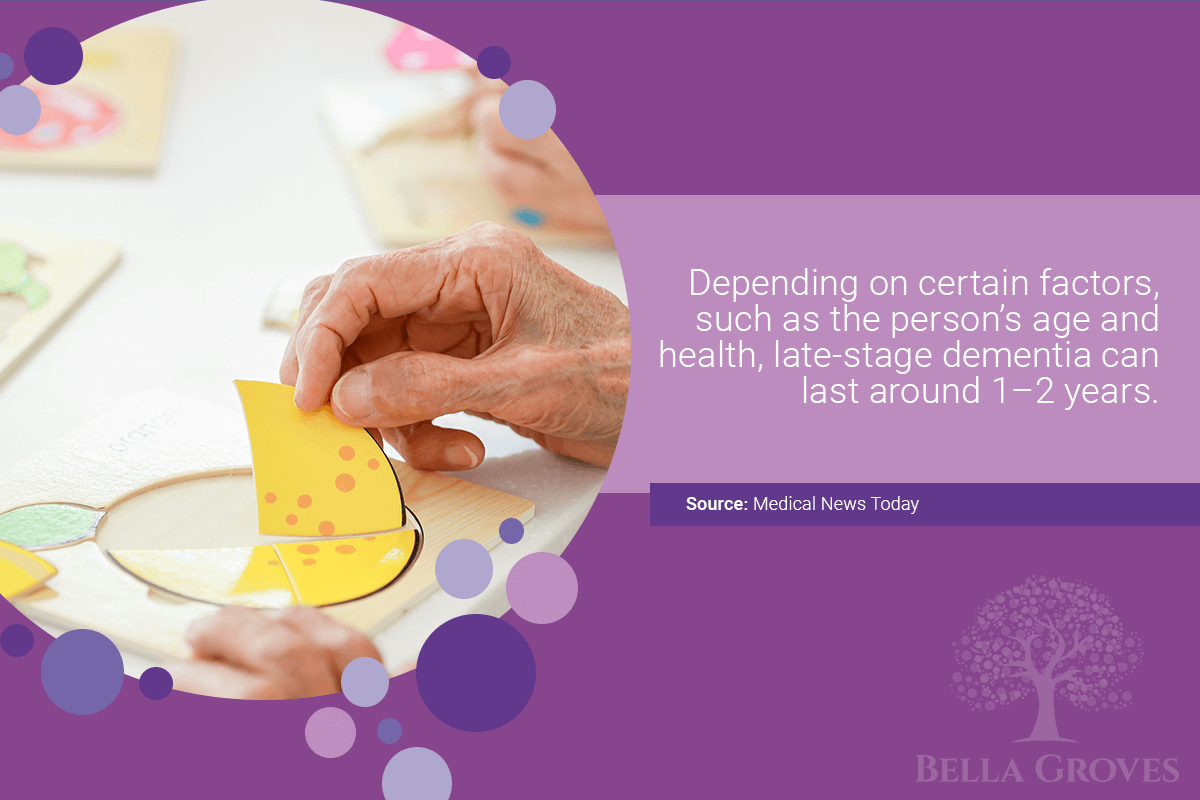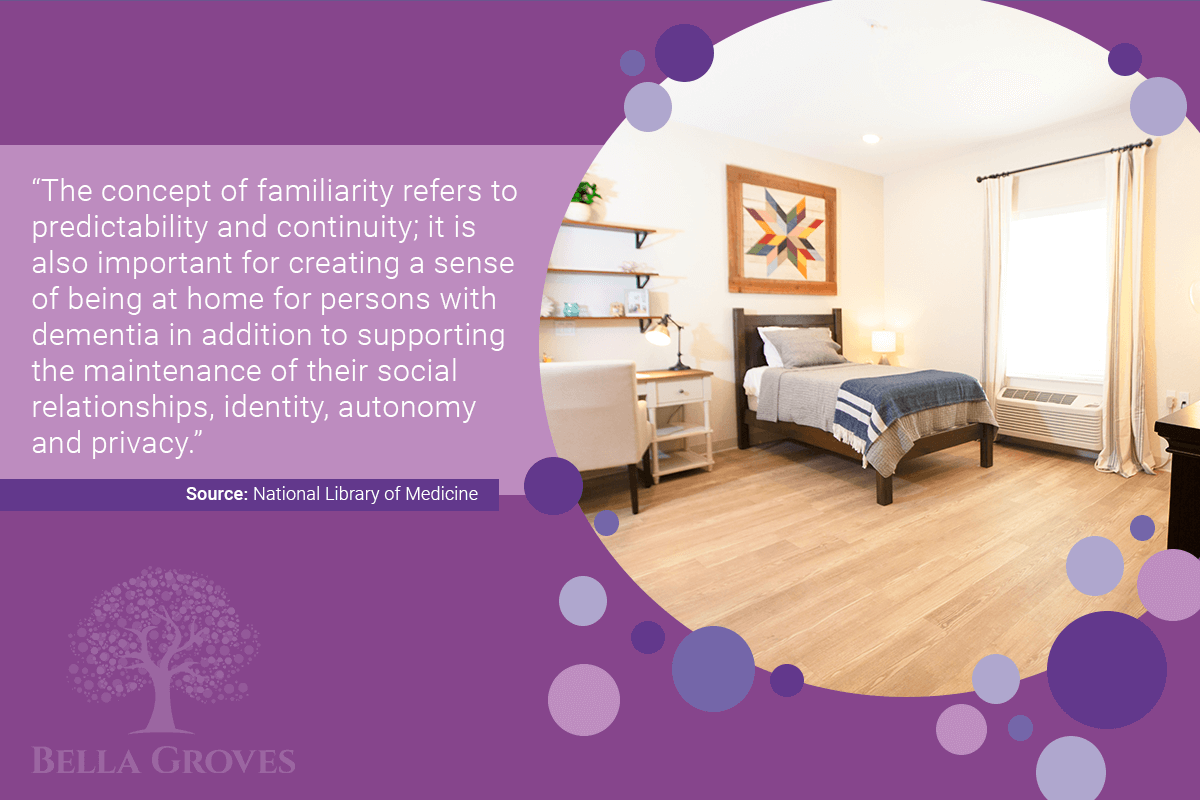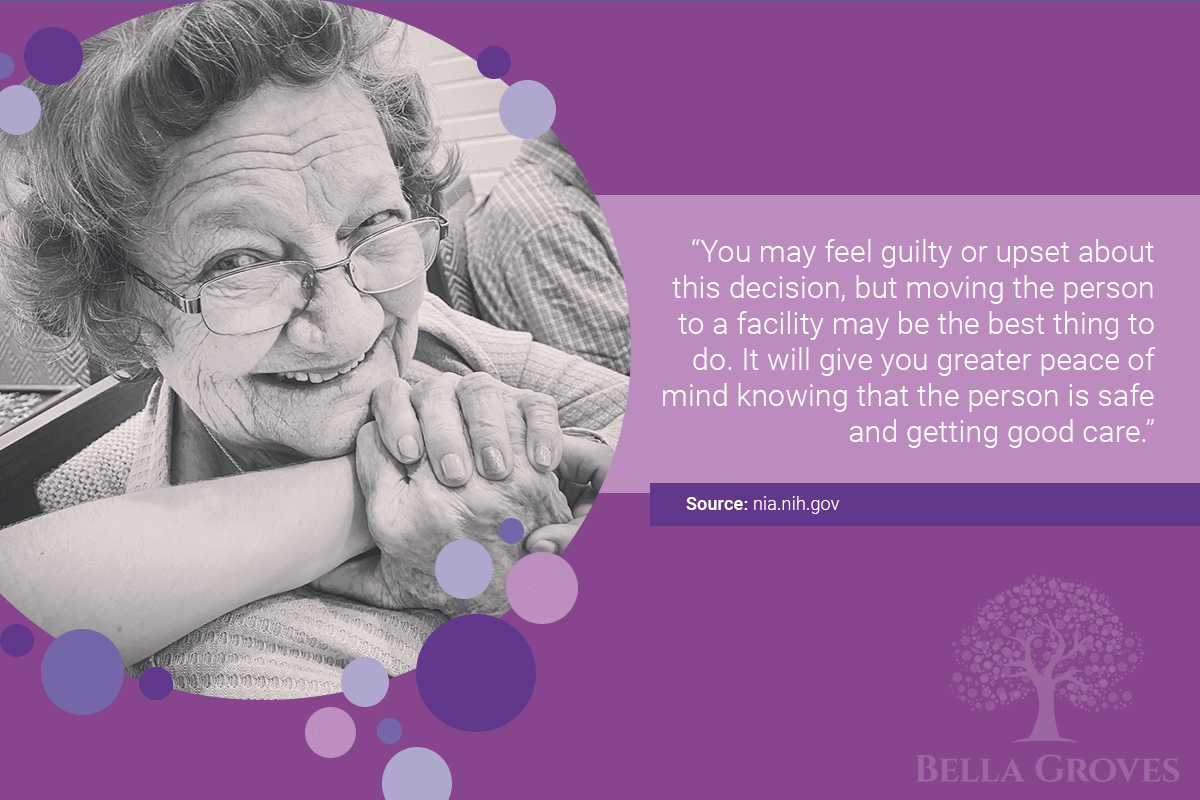
Navigating Late-Stage Dementia
Dementia refers to a category of conditions that affect cognitive functions, such as memory and behavior, with the most common being Alzheimer’s disease. All types of dementia are progressive; however, some people may experience a more rapid progression of symptoms than others. The symptoms that appear during late-stage dementia, also called “severe” or advanced dementia, have a significant impact on a person’s daily life, and caring for a person with late-stage dementia is an emotional experience.
It can be difficult to gauge how challenging the symptoms of late-stage dementia will become over time, how you will manage these symptoms as a person’s care partner, and how to cope with the impact of these symptoms while continuing to show up in a supportive and positive manner.
Our team at Bella Groves offers support and education to help individuals and their families at every stage of their journey. Navigating dementia can be difficult, but with us by your side, you’ll never have to walk alone.
Symptoms of Late-Stage Dementia
“The symptoms of [dementia] worsen over time, although the rate at which the disease progresses varies. On average, a person with Alzheimer’s lives four to eight years after diagnosis but can live as long as 20 years, depending on other factors (alz.org).”
Many times, the realization that your loved one has entered late-stage dementia can come without warning. During this stage, individuals lose the ability to respond to their environment, carry on a conversation, and, eventually, control movement. As a result, during late-stage dementia, individuals may:
- Require around-the-clock attention and assistance with personal care
- Lose awareness of recent experiences as well as of their surroundings
- Experience changes in physical abilities, including walking, sitting, and, eventually, swallowing
- Have difficulty communicating
- Become more vulnerable to infections and illnesses
Providing Late-Stage Dementia Care
During the late stages, your role as a care partner is to preserve quality of life and dignity. Although a person in the late stage of dementia may lose the ability to talk and express needs, the core of the person remains.
During late-stage dementia, nutrition becomes increasingly important as difficulties with eating and swallowing can lead to malnutrition. If a person with dementia refuses to eat or you’re concerned about their diet, speak to a medical professional.
In addition to eating habits, many people in the late stage of dementia experience severe mobility issues, which can lead to them spending most of their day in a chair or bed. Not only can this lead to pressure or bed sores over time, but it can also cause their arms, hands, and legs to become stiff. As a result, reposition your loved one every couple of hours if they’ve been sitting/laying in one place for an extended period of time, and use furniture with armrests to support their upper body. You can also consult a physical therapist to learn how to keep their joints and muscles moving using a range of small exercises.
Maintaining Connection and Support
Communication is another area that is significantly impacted by late-stage dementia. A person living with advanced dementia may lose the ability to verbally communicate and/or express their needs.
According to the Alzheimer’s Association, tips for successful communication during late-stage dementia include:
- Approaching the person from the front and identifying yourself
- Using touch, sights, sounds, smells, and tastes as a form of communication
- Considering the feelings behind words or sounds
Recognizing Your Limitations
Care needs become extensive during the late stage of dementia, and they may exceed what you can provide at home. It’s important to know that realizing your limitations does not make you weak or selfish. The primary focus should be on the person living with dementia and ensuring they have access to the care and support they need to maintain their life with dignity and grace.
No one should feel alone or isolated when dealing with dementia. At Bella Groves, our residential dementia care community in San Antonio provides support, purpose, and unconditional joy during every stage and chapter of your dementia story.
Dementia will progress; we’re here to progress with you. If you have questions about your dementia care journey, we invite you to call us at (830) 323-0440 or email us at hello@bellagroves.com.


